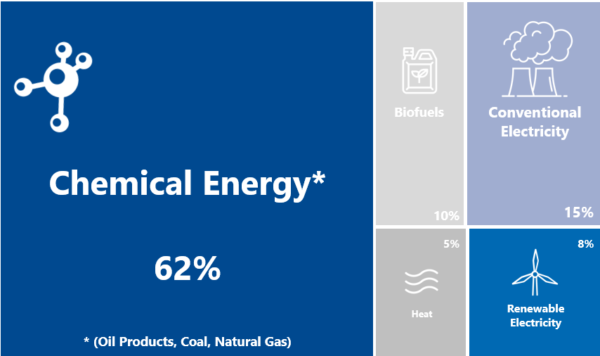
Event: FICHTNER Forum HYDROGEN 2020 – What will we use hydrogen for in the future?
Why are we organizing the FICHTNER Forum HYDROGEN? As we have been active in the hydrogen sector for 30 years, we have a large network and masses of market knowledge, which we believe enables us to contribute to the development of the hydrogen sector. In many discussions with clients, we have found that our opposite numbers are interested in acquiring a comprehensive view of the subject of hydrogen: On the one hand, the views of players from other sectors of the economy are of huge interest; on the other hand, many decision-makers are looking for a comprehensive view of hydrogen value chains and the future potentials for the industry. Developers of power-to-gas projects, for example, want to better understand their potential clients. Manufacturers of fuel cell vehicles need information on the expected cost of hydrogen in order to better assess the attractiveness of their product. And politicians need to understand how the various parts of the hydrogen economy interact. So the theme for this event was very clear to us: “Hydrogen value chains – from production to applications”.
It was important to us to start the journey for our more than 100 participants from 14 countries at the very end of the hydrogen value chain: What potential applications are open to hydrogen and which ones can we expect to come about? Our decision to look at hydrogen from the point of view of its application stems from our experience in consulting: Hydrogen is neither cheap nor readily available. It’s produced using other energy sources, such as natural gas and electricity. To begin with, then, it’s of key importance to find meaningful applications for hydrogen – regardless of whether you’re developing a project or a national hydrogen strategy. We also wanted to share this experience from our consulting work with the forum participants. This is why, in the first section of the forum, we got experts from thyssenkrupp Steel, Shell, Open Grid Europe and NEL to talk about the two different types of application for hydrogen.
Hydrogen in existing applications
In the ongoing debate on hydrogen, you sometimes get the impression that the production and use of hydrogen is something new. However, the reality is that 70 million tonnes of hydrogen are already being produced worldwide each year. This means that hydrogen production is already a multi-billion dollar industry, with the largest consumers being the refinery and fertilizer industries.
Since production is largely based on fossil fuels (mainly natural gas), hydrogen production today is the source of some 830 million tonnes of CO2 per annum, which roughly equates to all of Germany’s annual carbon emissions put together. As a result, decarbonizing the production of hydrogen for the refinery and fertilizer industries would represent an important step towards reducing greenhouse gas emissions.
Hydrogen in new applications
In order to recognize the potential of hydrogen, it’s important to understand the form in which energy is consumed today: Only about 25% of Europe’s total final energy consumption consists of electricity. Over 60% comprises the direct use of chemical energy in the form of natural gas, coal and petroleum products in industry, heating and mobility. And this is exactly where the potential of hydrogen lies: It can replace this enormous amount of energy in a way that is low on carbon emissions. To what extent this will be the case in the future is an issue subject to intense debate. However, even a small share of the enormous volumes of energy gained from fossil fuels would represent an enormous market volume.

Is it really different this time around?
Over the decades, hydrogen has repeatedly been predicted to have a great future ahead of it as an energy source, only for this prophecy never to come true. For this reason, there’s one burning question that must be asked at an event such as the FICHTNER Forum HYDROGEN: Will it be different this time around? In our view, there are four reasons why this may indeed be the case:
- Climate change is no longer an abstract threat, but a harsh reality that poses major challenges in many parts of the world.
- Public awareness of climate change is exerting enormous pressure on decision-makers in politics and business to legislate for and achieve greater sustainability.
- Renewable energies are now technologically advanced and attractively priced, and in some parts of the world even cheaper than fossil fuels.
- Huge amounts of capital are available for sustainable investments.
Together, these four factors create basic conditions and parameters that can help sustainable technologies, and especially hydrogen, succeed. So there’s a good chance that this time around it really is different.

Here are the insights of a number of our speakers into the future applications of hydrogen:
- Markus Schöffel (Manager Sustainable Production), thyssenkrupp Steel: “The transformation of the steel industry towards hydrogen”
- Gunnar Brandin (Division Manager Technical Projects), Open Grid Europe: “Infrastructure of hydrogen transport”
- Raymond Schmid (VP Sales & Marketing), NEL: “Hydrogen fuelling stations and green hydrogen production through electrolysis”
Dr. Markus Schöffel - The transformation of the steel industry towards hydrogen
Dr. Gunnar Brandin - Infrastructure of hydrogen transport
Raymond Schmid - Hydrogen mobility infrastructure

